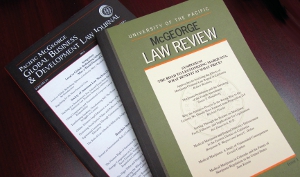Document Type
Article
Publication Date
2009
Abstract
If the modern era is properly characterized as the 'age of secularism' - a time when constitutional democracies finally have shed the last vestiges of church authority from the political realm and embrace a rationalist and humanist perspective - then the United States appears to be outside the Western mainstream. In this paper I explore how the relationship between politics and religious faith in the United States might be seen as part of the narrative of secularism that defines most other Western countries, even as the differences in the American experience might suggest an evolution of this narrative. My thesis is that President Obama might embody a means for faith and politics to co-exist in the post-secular age. I explore this paradoxical thesis in three parts. First, I analyze the concept of 'secularism' and recover an understanding of our 'secular' age that does not entail rejecting religious belief as a source of public values. Second, I discuss how Barack Obama is a secular politician in this sense, and argue that he may help to define a break from the traditional religious approach to politics exhibited by fundamentalist movements. Finally, I discuss the central question for a post-secular constitutional democracy: the role of religion in the public sphere. I conclude that the United States has the potential to be a secular state grounded in both religious belief and toleration, but this presents a continuing challenge for our polity rather than an accomplishment to be celebrated.
Recommended Citation
Mootz, Francis Joseph, Faith and Politics in the Post-Secular Age: The Promise of President Obama (August 10, 2009). UNLV William S. Boyd School of Law Legal Studies Research Paper No. 10-05. Available at SSRN: https://ssrn.com/abstract=1433545 or http://dx.doi.org/10.2139/ssrn.1433545.



